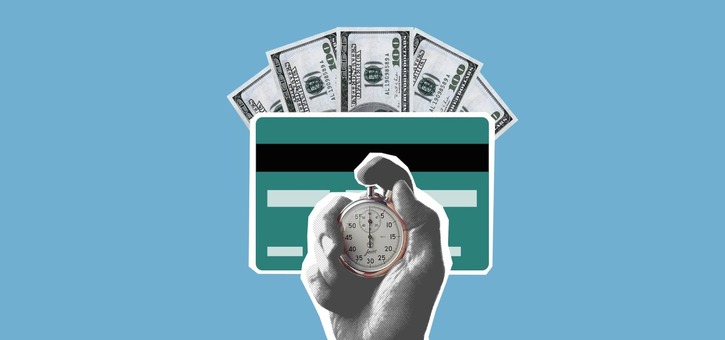Taxes in Hong Kong: full guide for US expats

Hong Kong’s favorable tax environment is a major draw for expats from all across the globe. Besides all benefits, for Americans living and working there, the tax picture is still quite complicated. US citizens and green card holders must navigate a unique set of tax obligations in both the US and Hong Kong.
This guide covers everything US expats need to know about taxes in Hong Kong.
This article is brought to you by Taxes for Expats (TFX) – a top-rated tax firm serving US citizens, residents, and anyone with US tax obligations, both at home and abroad. Planning to move to Hong Kong and need help with your US return or tax planning? Schedule your free discovery call, and we’ll review your case and walk you through the next steps.
Hong Kong taxation
Hong Kong Special Administrative Region (HKSAR) of China has a territorial tax system – only income sourced from within Hong Kong is taxable. Three main taxes apply: salaries tax (income), profits tax (business), and property tax.
There’s no tax on capital gains, dividends, or interest for individuals.
| Hong Kong tax system overview | |
|---|---|
| Tax year | April 1 – March 31 |
| Tax deadline | usually June 1 (check annually with Inland Revenue Department (IRD) |
| Maximum salaries tax rate | 17% (progressive); 15% (standard) |
| Profits tax (corporate) | 8.25% (first HKD 2M), 16.5% (above HKD 2M) |
| Profits tax (unincorporated) | 7.5% / 15% |
| Property tax | 15% on net assessable value |
| Capital gains tax | none |
| Dividends/interest Tax | none (for individuals) |
| Social security (MPF) | mandatory for employees and employers |
| Tax treaty with the US | no |
Who qualifies as a tax resident in Hong Kong?
You are considered a Hong Kong tax resident if you ordinarily reside in Hong Kong, stay in Hong Kong for more than 180 days in a tax year, or spend more than 300 days in Hong Kong over two consecutive years (one being the relevant tax year).
Foreigners who work in Hong Kong for fewer than 60 days in a tax year may be exempt from salaries tax under the 60-day rule.
Hong Kong taxes both residents and non-residents on income sourced within the territory, including employment, business profits, and rental income. Residency does not affect whether income is taxed, but it can impact access to certain reliefs.
For example, residents may elect for personal assessment, which allows them to combine different types of income and claim additional deductions.
Hong Kong income (salaries) tax rates
Hong Kong does not have a general personal income tax like many other countries. Instead, employment income is subject to salaries tax, which is calculated using progressive or standard rates. These rates apply specifically to salaries, wages, and employment-related (not self-employment) earnings.
Progressive tax rates:
| Net chargeable income | Progressive rate |
|---|---|
| First HK$50,000 | 2% |
| Next HK$50,000 | 6% |
| Next HK$50,000 | 10% |
| Next HK$50,000 | 14% |
| Remainder | 17% |
Standard tax rates:
- income up to HK$5,000,000: 15%
- income above HK$5,000,000: 16%
You’ll be taxed at the lower amount, either progressive or standard rate, after allowances and deductions.
Which income types are taxable in Hong Kong?
- Employment income: Salaries, bonuses, allowances, and benefits from Hong Kong employment or services performed in Hong Kong.
- Self-employment and business income: Profits from businesses operating in Hong Kong are subject to profits tax.
- Directors’ fees & stock options: Taxed if the company is managed/controlled in Hong Kong or if services are performed locally.
- Rental income: Taxed at 15% on net assessable value from Hong Kong properties.
- Pensions: Taxed if arising from Hong Kong employment.
Foreign-sourced income is generally exempt from taxes in Hong Kong.
Other types of tax in Hong Kong
Other types of tax in Hong Kong include property tax, stamp duty, betting duty, and hotel accommodation tax.
There is no capital gains tax, and estate duty was abolished in 2006, so no estate tax is levied.
Property tax is charged at 15% on the net assessable rental value of property located in Hong Kong.
Hong Kong does not impose sales tax, VAT, or withholding tax on dividends and interest, making it a highly tax-efficient jurisdiction.
Americans must keep in mind that the US taxes its citizens on worldwide income, regardless of where they live. This means that even though you may not pay tax in Hong Kong on dividends or interest you are still required to report and potentially pay tax on these types of income to the Internal Revenue Service (IRS).
Taxes for businesses in Hong Kong
Hong Kong offers a favorable tax environment for business, trading, and investment operations. The standard corporate profits tax rate is 8.25% on the first HK$2 million of profits and 16.5% on the remainder. For unincorporated businesses, the rates are 7.5% and 15%, respectively.
Significant tax deductions and concessions exist for R&D, IP acquisition, and capital investment, alongside sector-specific incentives for financial services, shipping, and e-commerce.
One of the major advantages of establishing a business in Hong Kong is its free trade policy. As a free port, Hong Kong imposes no tariffs on imports or exports and maintains minimal customs formalities. This open trade environment simplifies cross-border operations and makes it easier for businesses to engage in international commerce efficiently and cost-effectively.
Hong Kong social security & MPF
Both employer and employee contribute 5% of monthly income (capped at HK$1,500 each) to the Mandatory Provident Fund (MPF). Contributions are mandatory for most employees, with some exemptions for short-term expats.
MPF contributions are tax-deductible (up to HK$18,000/year).
How to file and pay taxes in Hong Kong
- Register with the IRD: Notify within one month if starting work/business.
- Tax return (BIR60): Issued annually, usually in May; due in one month.
- eTAX online system: Register for eTAX to file returns, check status, and pay taxes online. Voluntary e-filing grants a one-month extension.
- Payment: Pay via bank transfer, ATM, credit card, or in person. Payment deadlines are specified in assessment notices.
Always check for the latest digital filing requirements and deadlines on the IRD website.
Deadlines and penalties for late filing
The tax return deadline in Hong Kong is typically one month after issue (usually June 1). Extensions are available.
Penalties:
- Initial late filing penalty is HK$1,200, with additional penalties up to HK$10,000 and/or prosecution for continued non-compliance.
- Late payment penalty is 5% surcharge on unpaid tax after due date, with additional 10% if still unpaid after six months.
Americans abroad must file their US tax return with the IRS in addition to their income tax return in Hong Kong, if applicable. If you live abroad, you automatically receive a two-month extension to file your federal return – until June 16, 2025. However, any taxes owed are still due by April 15.

Most popular US tax forms for expats in Hong Kong
US expats in Hong Kong may need to file several tax forms, including:
- Form 1040 or Form 1040-NR: the standard income tax return required for all US citizens, regardless of location.
- Form 8938 (FATCA report: required if foreign assets exceed $200,000 on the last day of the tax year or $300,000 at any point ($400,000 and $600,000 for married taxpayers filing jointly).
- FBAR (FinCEN Form 114): required if the combined value of foreign bank accounts exceeds $10,000 on any day during the tax year. It must be filed separately from your tax return.
Double tax relief and US-Hong Kong tax treaty
Hong Kong and the US do not have a tax treaty, but there’re a few double tax relief mechanisms available for US expats:
- Foreign earned income exclusion (FEIE): Exclude up to $130,000 (2025) of foreign-earned income from US tax if you qualify.
- Foreign tax credit (FTC): Offset US tax liability with Hong Kong taxes paid.
Choosing between the foreign tax credit and the foreign earned income exclusion isn’t always straightforward. It depends on many factors, including your income level, the type of income you earn, and your tax residency.
Need help with US taxes in Hong Kong? Get expert advice
If you are living in Hong Kong, starting a business there, or just planning a move, staying on top of your US tax obligations is essential. Managing foreign income, credits, and deadlines can be complex, but you don’t have to handle it alone.
At Taxes for Expats, we bring over 20 years of experience helping Americans in Hong Kong stay compliant with tax laws and avoid costly mistakes. We will guide you through every step of the process with advice tailored to your tax situation.




